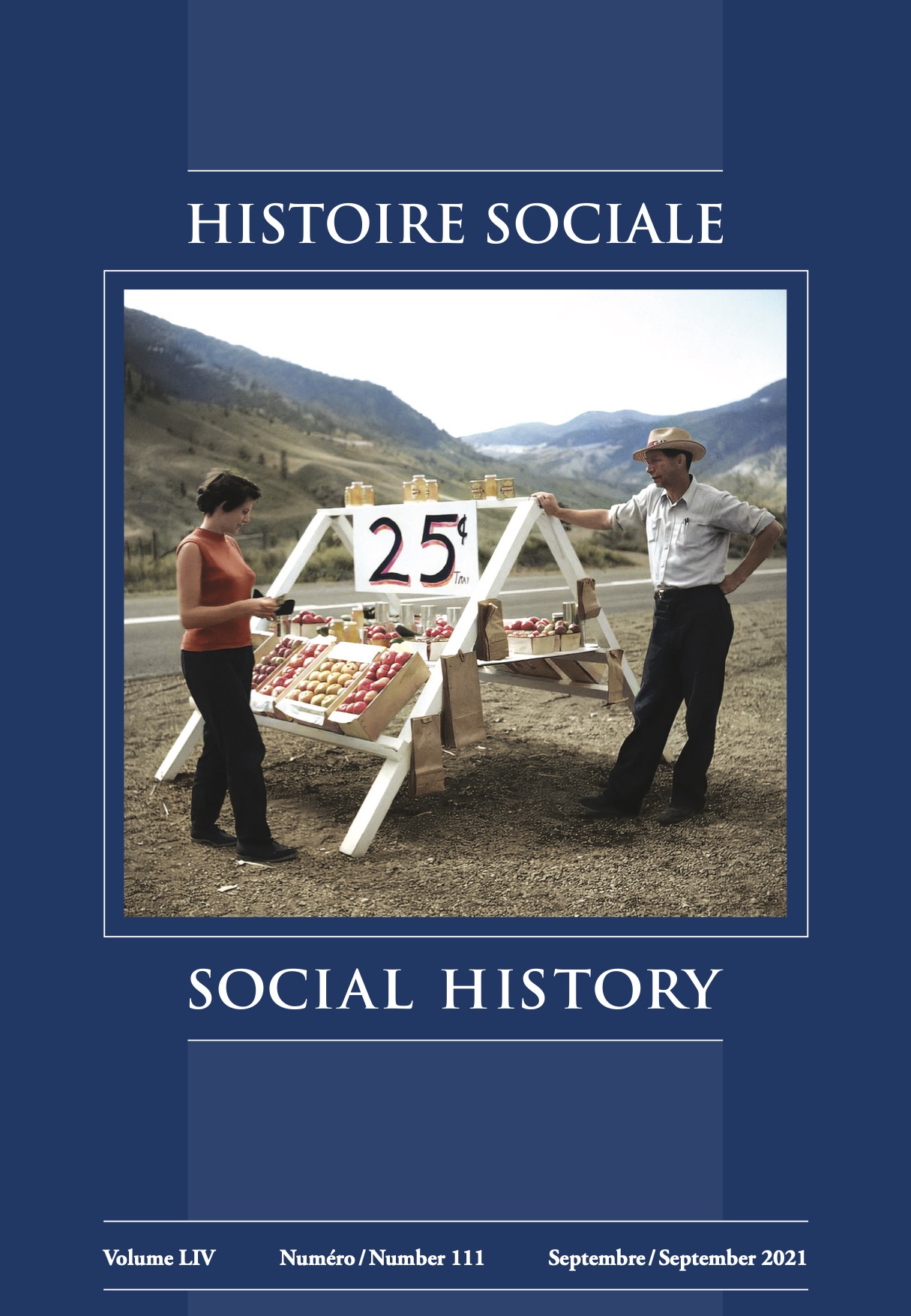Fruitleggers, Fruit Police, and British Columbia’s Black Market in Orchard Fruit, 1935–1975
DOI:
https://doi.org/10.1353/his.2021.0038Abstract
In the late 1930s, British Columbia orchardists established an orderly marketing system that mandated all tree fruit grown in the province’s southern Interior be pooled and sold under the auspices of a marketing board called the BC Fruit Board. This compulsory system helped to stabilize the industry, but its benefits were shared unevenly across the community of growers, and not all were amenable to its tenets or willing to cooperate fully with its control policies. Fruit stands were a legitimate way to circumvent the board and get paid cash for one’s produce, but they had an illicit, underground counterpart: a black market in which fruit was transported for unauthorized sale in distant population centres. Drawing on interviews with former “fruitleggers” and industry officials, this article traces the emergence, expansion, and decline of this black market, as well as Fruit Board efforts to control it.


